A cancer diagnosis is one of the most devastating things a person can hear from their doctor. The National Cancer Institute estimates that roughly two million people will be diagnosed with cancer in 2025 in the U.S. And 618,120 of those will most likely not make it.
The disease is no laughing matter, but one woman still decided to use it as a scapegoat for her financial troubles, lying to her parents and sister about having cancer so they would help her cover the rent. However, her sister soon found out and exposed her to their parents.
Cancer is a serious disease, but one woman faked it to get financial help from her parents
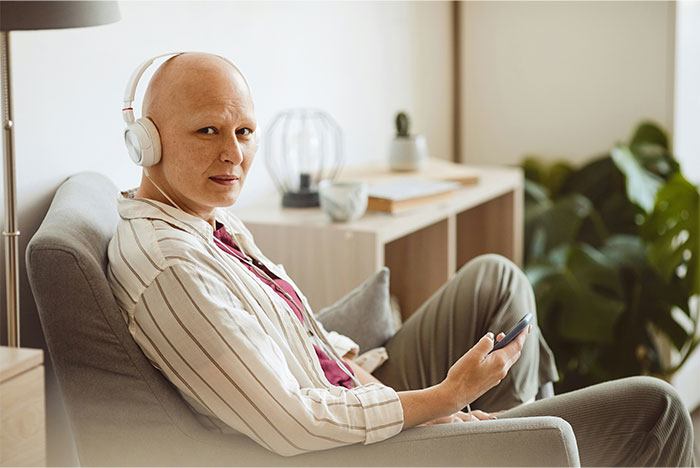
Image credits: unsplash (not the actual photo)
Her sister found out about the lie and exposed her to their parents
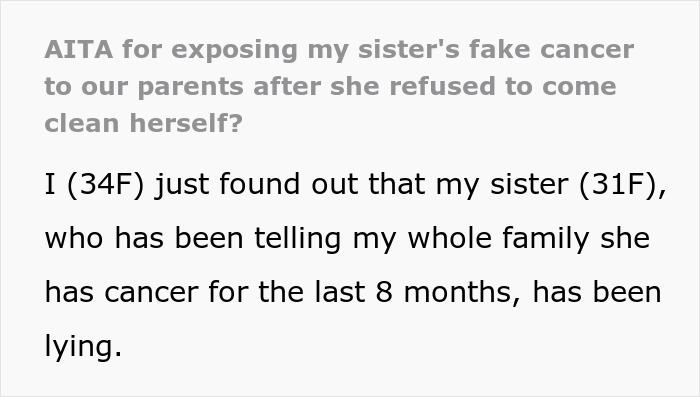
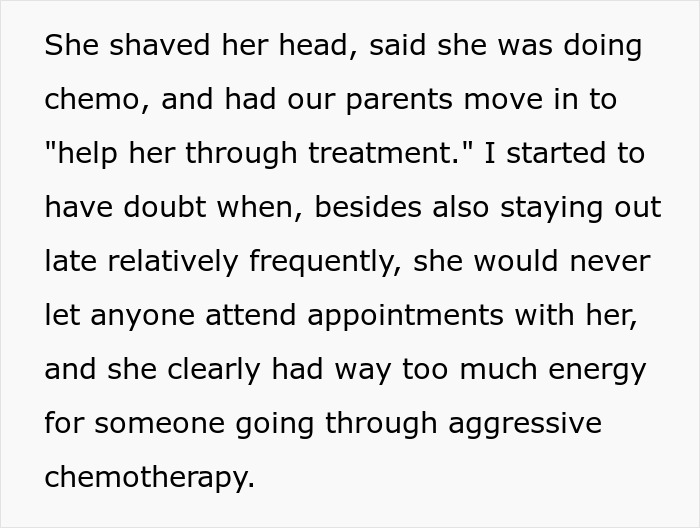
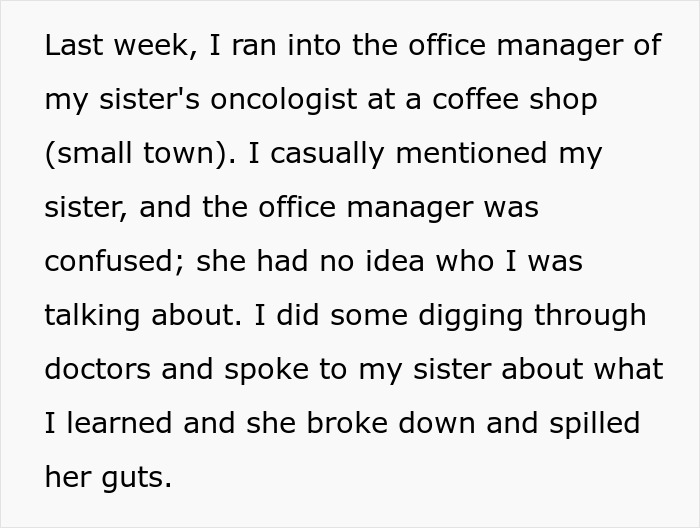

Image credits: unsplash (not the actual photo)
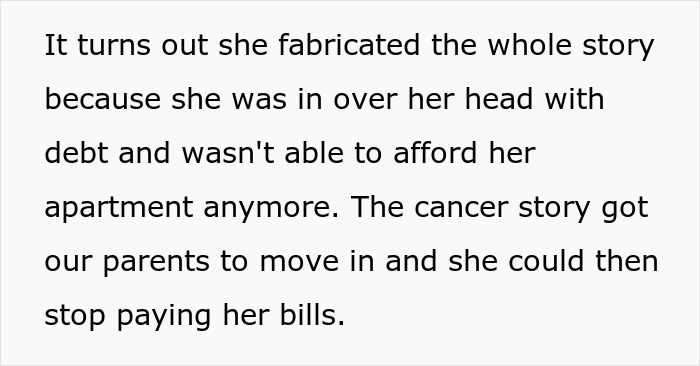
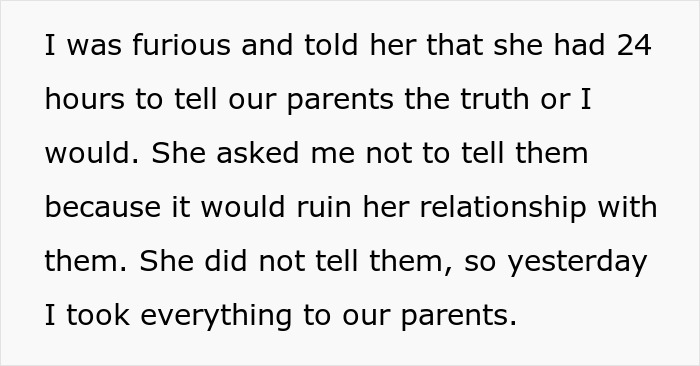
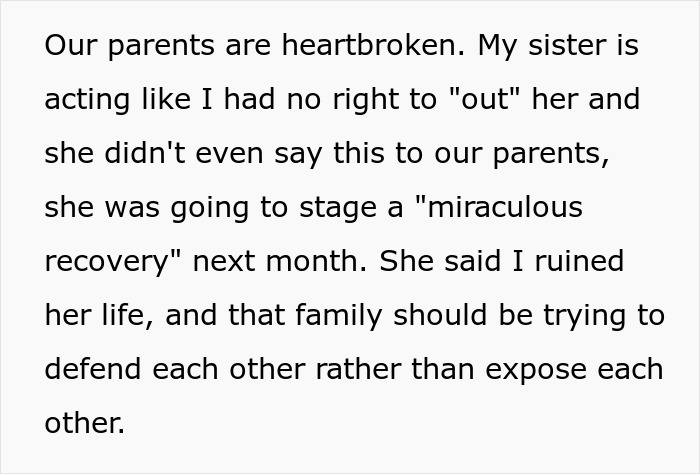
Image credits: Fit-Hunt-2476
People faking cancer may be more common than we realize

Image credits: freepik (not the actual photo)
The OP’s sister is not the first person to fake having cancer. In the last decade or so, there has been a worrying trend of people pretending to have cancer for sympathy and even financial gain.
The most obvious examples are crowdsourcing campaigns on platforms such as GoFundMe. Although there are no available statistics about how many cancer treatment campaigns might be fraudulent, a 2019 study did find that over 13,600 people have donated to GoFundMe campaigns raising money for unproven cancer treatments.
When reporter Róisín Lanigan investigated this topic for The Atlantic in 2019, all 10 representatives from the three online support groups she contacted claimed they’ve had instances of people pretending to have cancer.
Of course, it’s easier to commit cancer fraud online. In one case, a woman faking cancer joined an invite-only breast cancer Facebook group. She quickly became close with the other women and received sympathy, money, and gifts (even some expensive wigs).
It turned out she was faking the entire thing, as Colorado police later arrested her for faking terminal cancer on GoFundMe and accepting donations through several accounts.
Perhaps the most well-known example of faking cancer at the moment is the true story behind the Netflix hit show Apple Cider Vinegar. Belle Gibson, an Australian wellness influencer, faked having terminal brain cancer to promote alternative therapies.
Yet, she had inconsistencies in her narrative, and two investigative journalists found her out. Still, she’s an example of how far some people will go to fake cancer for sympathy and financial gain.
People fake having an ailment for either attention or financial benefit
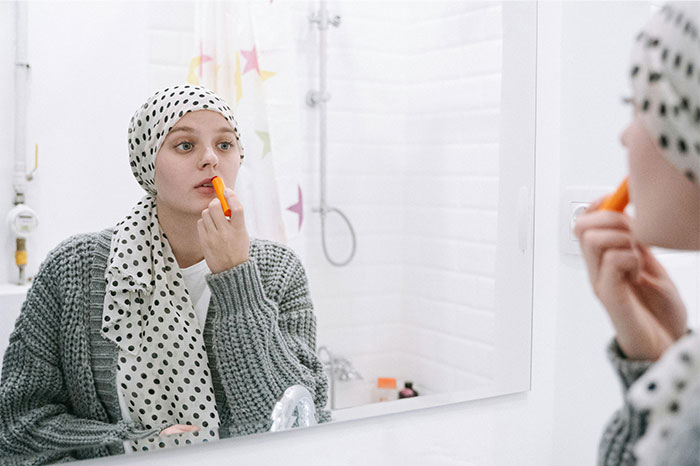
Image credits: pexels (not the actual photo)
Experts say that people choose to fake cancer particularly because it’s so common nowadays. You’d hardly find a person without a family member or friend that hasn’t been affected by the disease in some capacity.
“So few people would question an individual’s self-report of having it,” psychiatrist Marc Feldman told The Atlantic. “Cancer is associated with heroism for the vigorous ‘battle’ waged against it by those afflicted.”
There are usually two main reasons why people lie about having cancer, says clinical psychologist Hillary Ammon. “For some, they may feign illness with the desire to be cared for by others or receive attention. In other instances, they may be gaining money or time off from work.”
Experts call faking any kind of illness factitious disorder. Previously known as Munchausen syndrome, it can affect people without them being able to explain why they’re faking a disease.
The road to recovering from factitious disorder can be long. Ammon explains that first medical professionals must make sure the person is okay physically and hasn’t been harming themselves in order to appear sick.
Then, the best option is to analyze the underlying cause of this behavior with therapy. “While there is no treatment specifically for factitious disorder, a mental health provider may help these individuals resolve underlying issues,” Ammon adds.
People had little sympathy for the faker: “Your sister spat in the face of all cancer patients and survivors”
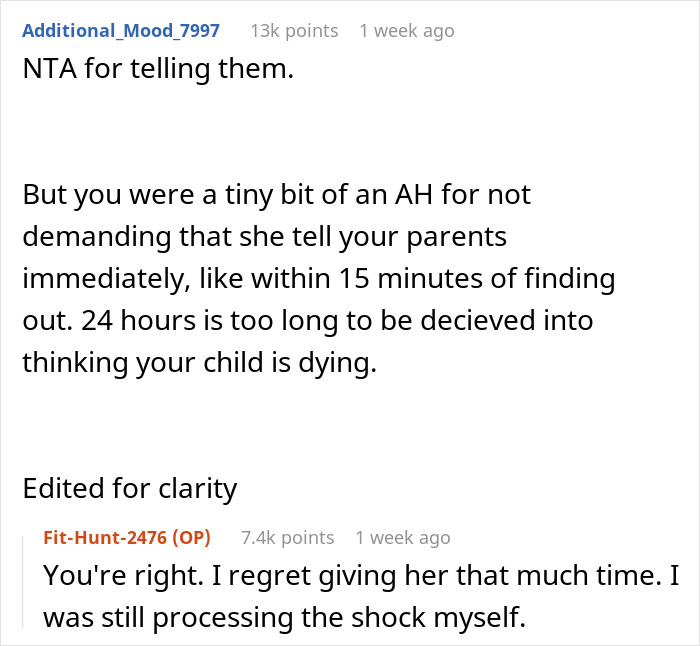


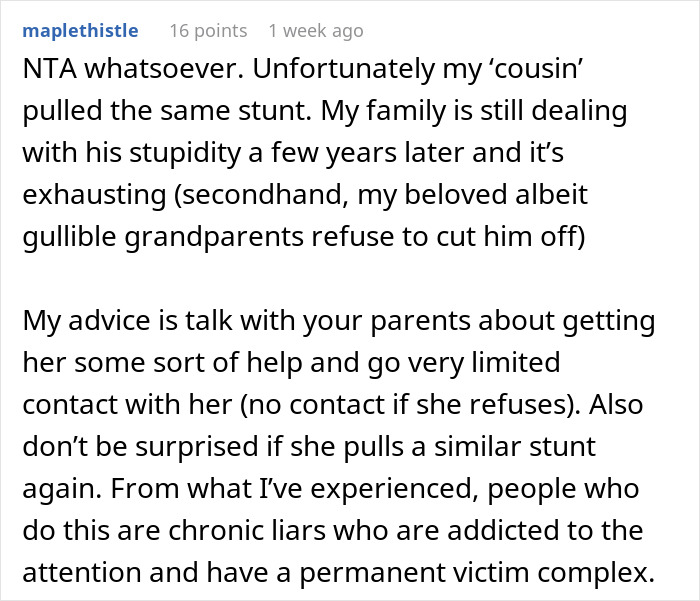

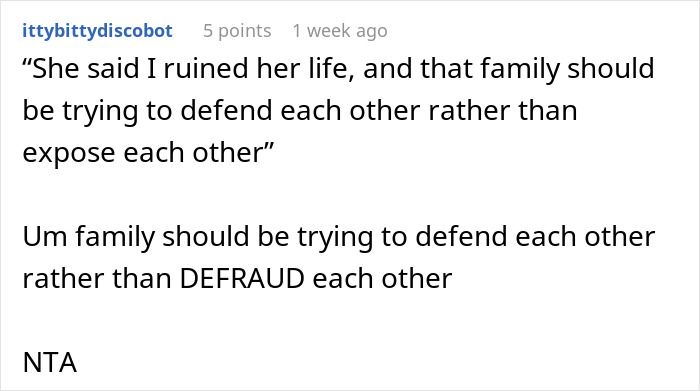
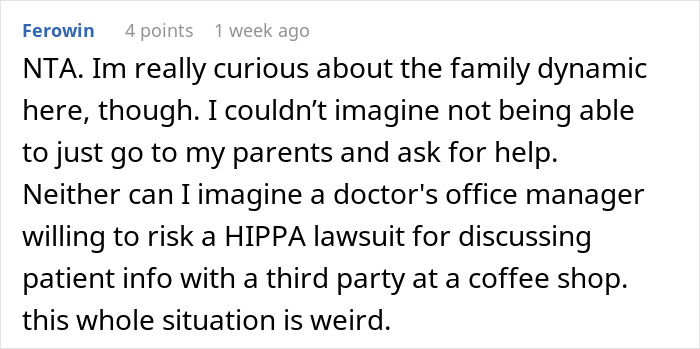
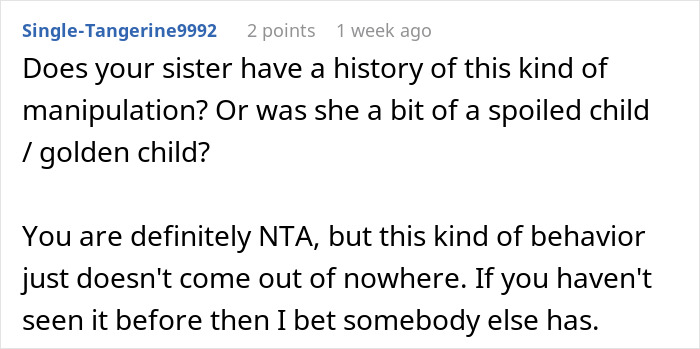
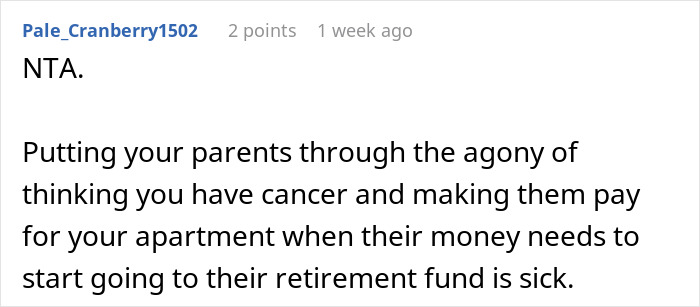
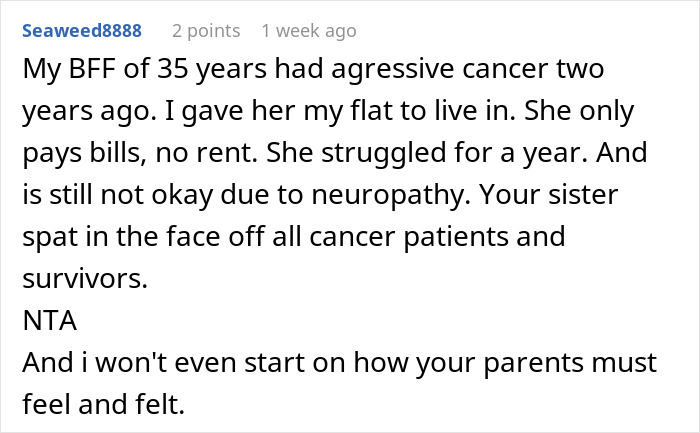
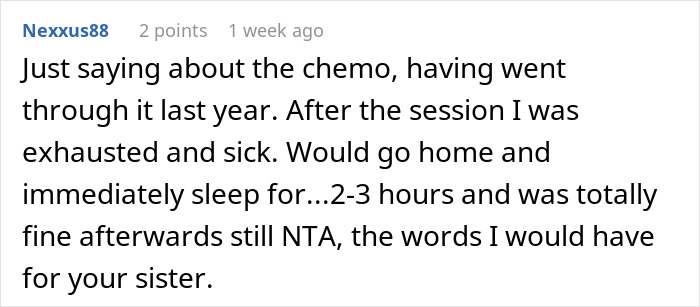
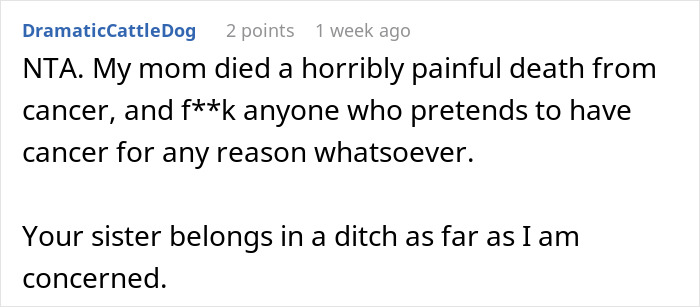


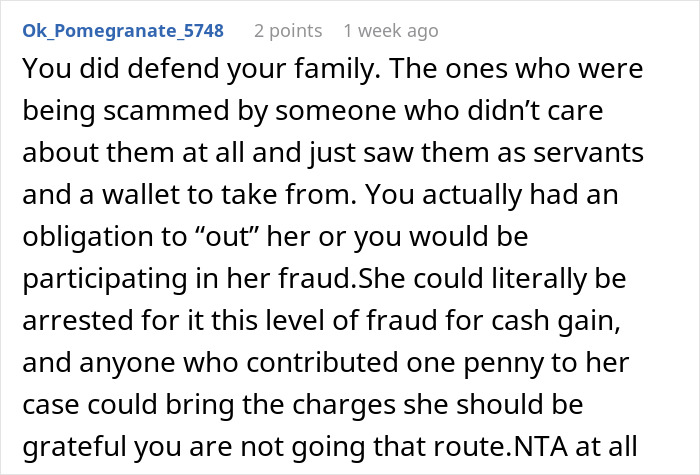
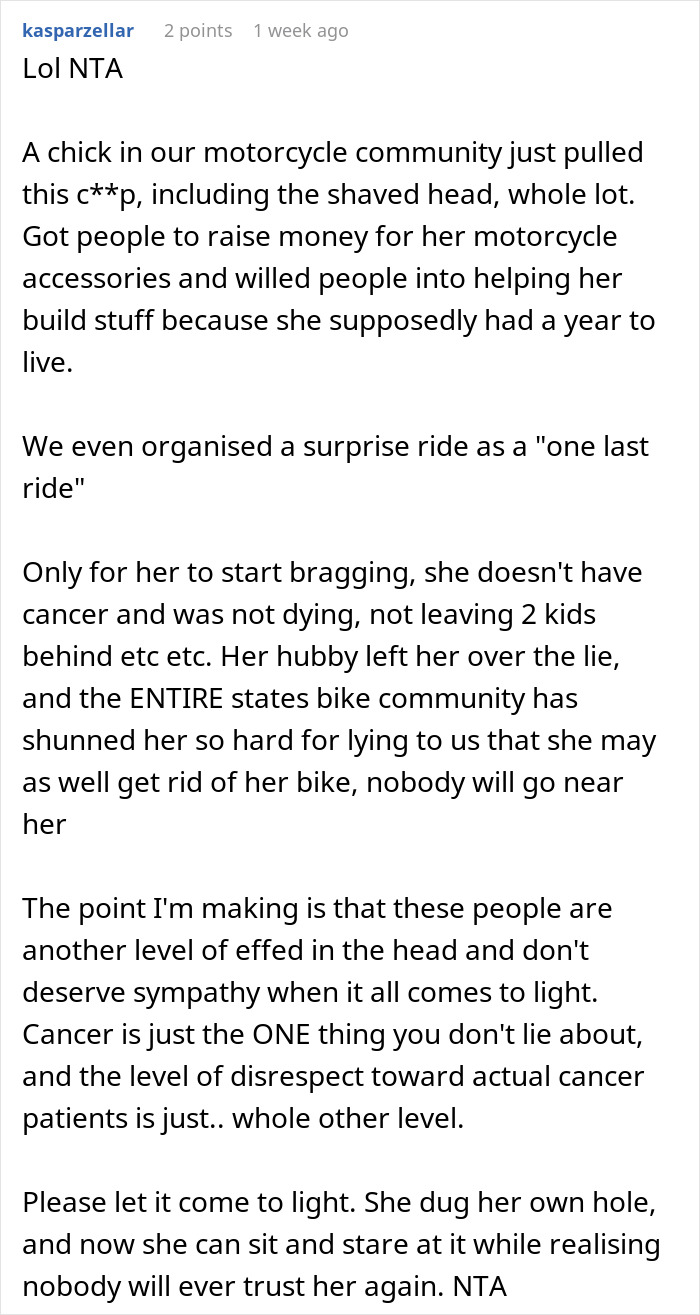


Others pointed out how unethical it was for the sister to snoop around like that


from Bored Panda https://ift.tt/gD9Kh0j
via IFTTT source site : boredpanda